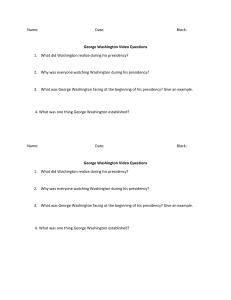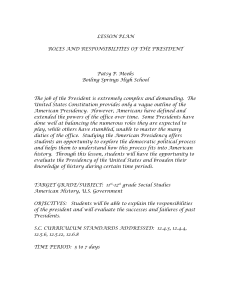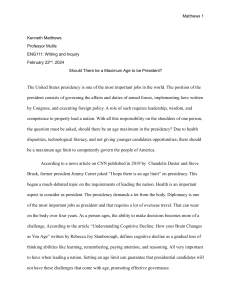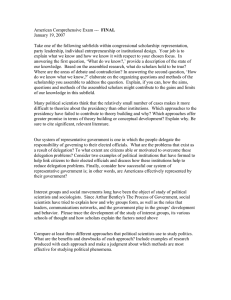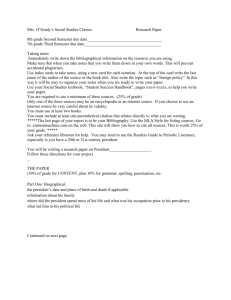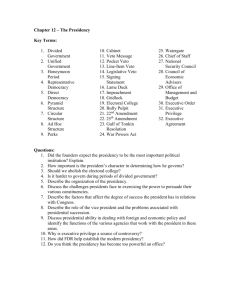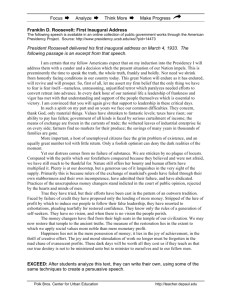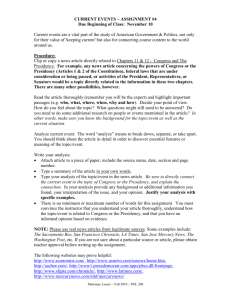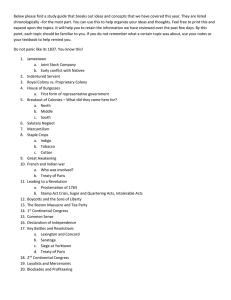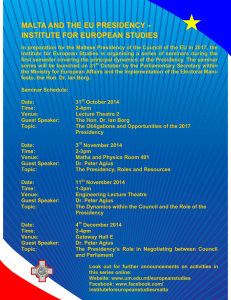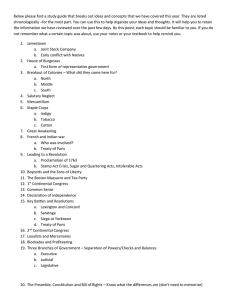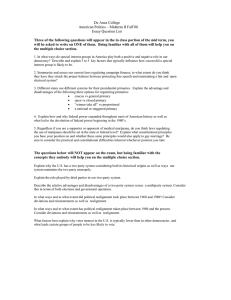January 22, 2010 Directions
advertisement
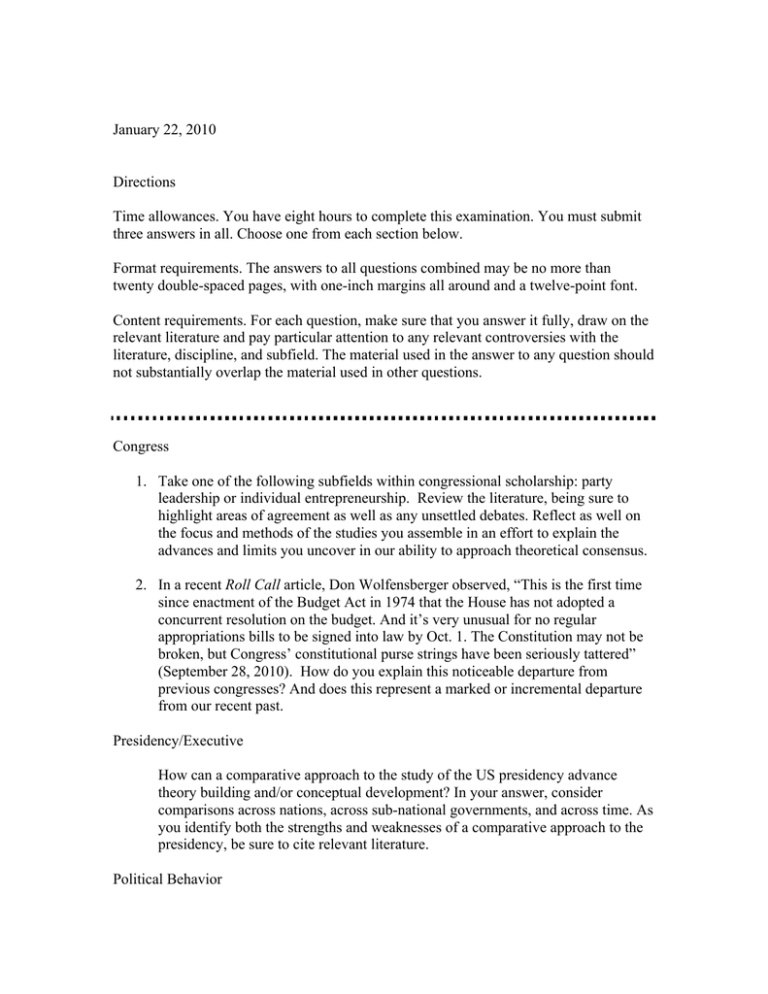
January 22, 2010 Directions Time allowances. You have eight hours to complete this examination. You must submit three answers in all. Choose one from each section below. Format requirements. The answers to all questions combined may be no more than twenty double-spaced pages, with one-inch margins all around and a twelve-point font. Content requirements. For each question, make sure that you answer it fully, draw on the relevant literature and pay particular attention to any relevant controversies with the literature, discipline, and subfield. The material used in the answer to any question should not substantially overlap the material used in other questions. Congress 1. Take one of the following subfields within congressional scholarship: party leadership or individual entrepreneurship. Review the literature, being sure to highlight areas of agreement as well as any unsettled debates. Reflect as well on the focus and methods of the studies you assemble in an effort to explain the advances and limits you uncover in our ability to approach theoretical consensus. 2. In a recent Roll Call article, Don Wolfensberger observed, “This is the first time since enactment of the Budget Act in 1974 that the House has not adopted a concurrent resolution on the budget. And it’s very unusual for no regular appropriations bills to be signed into law by Oct. 1. The Constitution may not be broken, but Congress’ constitutional purse strings have been seriously tattered” (September 28, 2010). How do you explain this noticeable departure from previous congresses? And does this represent a marked or incremental departure from our recent past. Presidency/Executive How can a comparative approach to the study of the US presidency advance theory building and/or conceptual development? In your answer, consider comparisons across nations, across sub-national governments, and across time. As you identify both the strengths and weaknesses of a comparative approach to the presidency, be sure to cite relevant literature. Political Behavior 1. Our system of representative government is one in which the people delegate the responsibility of governing to their elected officials. What are the problems that exist as a result of delegation? To what extent are citizens able or motivated to overcome these delegation problems? 2. For the last thirty years, there has been a debate among political scientists as to whether the electorate has undergone dealignment, realignment, or neither. Recently, the value of the concept of realignment itself has been called into question. Discuss the arguments and evidence in this debate. What arguments and evidence do you find most persuasive and why?
